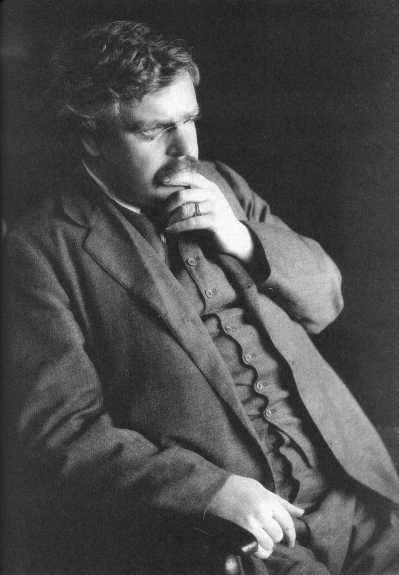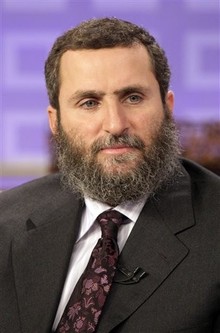When I set out to write this entry, I had first intended to talk about the curious dichotomy between the words “jealousy” and “envy”. These words are nearly antonymous, but in common parlance are conflated to such an extent as to be nearly synonymous. Upon meditating on the subject, I have now come to ponder on how there’s a much more fundamental and wide-reaching problem that goes beyond the common conflation of two terms.
“Woe to those who call evil good and good evil, who put darkness for light and light for darkness,who put bitter for sweet and sweet for bitter.” – Isaiah 5:20
Being raised on the “New World Translation” and associated rhetoric from the Watchtower, it was drilled into me at an early age that the contemporary slang usage of “bad” to convey approval or excitement was a simply shocking fulfillment of this scripture. The NWT translates “rah” as “bad” (rather than “evil”) and thus the basis for pointing out this linguistic coincidence. Like everything else in the Watchtower, the focus remains on the appearance of things rather than on the real root of the problem.
In reality, when someone in youthful exuberance exclaims “that’s bad!” or more likely “bad ass!” (as “bad” by itself has seemed to have fallen out of favor in deference to some obligatory reference to livestock), the person in question typically understands the literal meaning of “bad” here.
What is more insidious is words that are nearly antonymous but conceived and used as though they are synonymous. The Watchtower itself makes this mistake when it draws upon an ignorant correlation between “destruction” and “annihilation” and more broadly “death”. All of these words are very distinct. When one “destroys” life, he brings about “death”, but that “death” is a state of existence. Life is a state of existence as well, but it is not the only one. So the mistake the Watchtower makes is a false correlation between “life” and “existence” and thus draws the conclusion that death must mean non-existence and thus annihilation.
We can easily see how false annihilationism is when we just do a little comparative analysis on the terms. If a corpse is a “dead body” does it exist? If it does not exist, then to what are we even referring? Is a “corpse” something we simply conjure up in our dark imagination? Or is it in fact something to which we point and call “dead”? The corpse exists, yet we call it “dead” because “death” is a state of existence. If it were really synonymous with non-existence then a corpse—which is commonly defined as a “dead body”—would really be a “non-existent body” and thus this “corpse” would only exist in our minds as a concept. We know intrinsically this is false, for as Christ said “Wherever the corpse is, there the vultures will gather.” (Matthew 24:28)
Note what the Watchtower says on the matter: “When a person dies, he ceases to exist. Death is the opposite of life. The dead do not see or hear or think. Not even one part of us survives the death of the body. We do not possess an immortal soul or spirit” – What Does the Bible Really Teach?, Chapter 6
This is a curious set of statements. If a person “ceases to exist” at death, and yet that “person” does not have a personal nature (soul), then what is it exactly that is ceasing to exist? Clearly the body is still there, so what’s the difference? When one talks with Watchtowerites this becomes a real point of frustration for them as they insist that death is clearly the cessation of existence, for “death is the opposite of life”. What they don’t understand in their ignorance is that Christians agree. Death as one state of existence is an opposite state to the state of existence we call Life. A chair is neither alive, nor dead, yet it exists. So we see that “death” is the state of existence wherein something has become bereft of something it once had. The “life” in that thing (which we can call “spirit”) has gone out; it has become separated from the object in question, and the object returns to its inanimate—or at least mechanistic—state of existence.
This becomes important when we understand the concepts of Eternal Death and Eternal Destruction (Mark 9:43) of the soul itself. This “second death” (Revelation 21:8) is one where the soul continues to exist—just as the corpse did—but it is bereft of the Life that is in God which is ultimately a state of torment (Luke 16:23, Revelation 14:11). The soul is “destroyed” just as one might destroy a stool by breaking its legs. The matter is still there; it has not been “reduced to nothing”. One might not really call it a “stool” any longer, but a pile of wood, yet the wood continues to exist.
Since the Watchtower continues to teach upon the flawed premise that “death” is synonymous with “non-existence” and “destruction” is synonymous with “annihilation”, many continue to be misled into false doctrine. A simple conflation of terms can thus lead people into serious error, and the Watchtower itself stands condemned of saying “good is bad and bad is good” when they call the justice of God unjust and insist it is “torture*“.
Moving out from the sphere of my own personal experience, a more common conflation of terms would be that of “charity” or “love” with “unselfishness”. C. S. Lewis wrote at length in a number of his books about this philological evil, attributing the substitution to a department of Hell in his fiction “The Screwtape Letters”. And that attribution I find highly insightful.
When we really think about it, it’s all rather diabolical how the positive affirmation of giving could be equated with a mere negative denial of taking. This leads us into all kinds of error. Charity is the highest of virtues, for indeed God Himself is Love (1 John 4:8). Yet, what do we hear in common parlance these days? “Do be more charitable”? Or “Don’t be so selfish”? This error of linguistic equivalence and/or substitution can have the most tragic of consequences. If it is the highest moral good to deny self, then suicide becomes the noblest act imaginable.
We Christians do not (or should not) say that the profundity of Christ’s sacrifice was in the allowing of His life to be taken, but rather in the giving of His life on our behalf, for “God so loved the word that He gave His only Son” (John 3:16). And this brings us back to the point about “suicide”.
 “Obviously a suicide is the opposite of a martyr. A martyr is a man who cares so much for something outside him, that he forgets his own personal life. A suicide is a man who cares so little for anything outside him, that he wants to see the last of everything.” – Orthodoxy by G. K. Chesterton (Chapter 5)
“Obviously a suicide is the opposite of a martyr. A martyr is a man who cares so much for something outside him, that he forgets his own personal life. A suicide is a man who cares so little for anything outside him, that he wants to see the last of everything.” – Orthodoxy by G. K. Chesterton (Chapter 5)
It is a curious case in Christian tradition that the martyrs are looked upon with the greatest of respect, buried in hallowed tombs, while the suicides have been looked upon with ignominy, buried apart in shame. Jesus triumphed through His death on the tree (Colossians 2:14,15), while Judas was defeated by his death on a tree. The location of Christ’s tomb is debated, sought after, and venerated to this day; the location of Iscariot’s “field” became a “burial place for strangers” (Matthew 27:7). Again, we have two words that are nearly antonymous, yet often confused in popular discourse.
Finally, if we return to the two terms “jealousy” and “envy” we come to a most serious conflation of terms. For in its subtlety, this misunderstanding has created a lot of confusion about how scripture reveals the very character of God. This confusion is then used to engender skepticism and effect apostasy. To see how devastating this can be, just consider this sad testimony…
“I happened to be sitting in church in my late 20’s, and I was going to this church where you had to get there at 8 ‘o clock in the morning or you couldn’t get a seat and a very charismatic minister and every body was just into the sermon, and this great minister was preaching how great god was and how omniscient and omnipresent and god is everything and then he said ‘and the lord thy god is a jealous god’. And I was caught up in the rapture of that moment until he said ‘jealous’. And something struck me–I was like, I think about 27 or 28–I was thinking God is all, God is omnipresent–and God’s also jealous? Jealous? God is jealous of me? And something about that didn’t feel right in my spirit, because I believe that God is love and that God is in all things, and so that’s when the search for something more than doctrine started to stir within me.” – Oprah Winfrey
If Oprah had understood the real difference between the real meaning of “jealousy” in our language (or bothered to ask for such understanding) before it was conflated in common parlance with “envy”, perhaps she would never had started that “search” away from sound “doctrine” and started her own little new age cult as she has. A misunderstanding arising from a conflation of terms again thus leads many into darkness.
The truth is that there was a time in English when “jealousy” and “envy” were rather distinct. Jealousy refers to the zeal one has for what is rightfully one’s own. Envy refers to the zeal one has to attain that which is not one’s own. It is a sin to covet; it is not a sin to protect one’s own. This distinction is why “zelos” is translated “envyings” in the King James Version of 2 Corinthians 12:20 where it is “jealousies” in more contemporary translations.
Both “jealousy” and “envy” are forms of “zeal” (part of the confusion entering in as “jealousy” is etymologically related to “zeal”), but they are on oppposite ends of the spectrum of that “zeal”. As it was historically used in English, “jealousy” was always a very good thing, and contrary to Oprah’s ignorant statements it is precisely right because it is motivated completely “out of love”. Ironically enough, a rabbi explained the matter quite eloquently on Oprah’s own website…
“Envy is the illegitimate desire to possess that which belongs to someone else, but jealousy is the justifiable wish to own that which is rightfully yours.” – Rabbi Shmuley in an article on Jealousy
Since all things are rightfully God’s, it is perfectly justifiable that one of God’s very names is “Jealous”, for out of His great love He desires His people. It’s surprising to see such a lucid statement on the matter on Oprah’s own website, and I’ve wondered if she’s ever reversed herself on this point. I find it doubtful as a lot of what Oprah says and teaches is contradictory and illogical by design.
Whether it’s “destruction” and “annihilation”, “charity” and “unselfishness”, or “jealousy” and “envy”, conflation of terminology accomplishes a lot of evil in its proliferation of error, and I’ve only talked about a small set of examples. Words have tremendous power. It was by the Word of God that creation was spoken into existence (John 1:1-3, cp. Genesis 1).
Like all things with power, words can be used for good or evil. That is why we are called to discernment, to consider words and their meanings very carefully lest we be led astray. It is simply too important to do otherwise. And so I will close with a favorite dialog of mine that I feel illustrates the point. It is from a play adapted to film called “A Man For All Seasons“…
Thomas: On what compulsion is the oath?
Meg: High treason.
Thomas: But what is the wording?
Meg: Do the words matter? We know what it means.
Thomas: Tell me the words. An oath is made of words. It may be possible to take it.
Meg: Take it?
Thomas: And if it can be taken, you must take it, too.
Meg: No!
Thomas: Listen, Meg. God made the angels to show him splendour.As he made animals for innocence and plants for their simplicity. But Man he made to serve him wittily, in the tangle of his mind. If he suffers us to come to such a case that there is no escaping… then we may stand to our tackle as best we can. And yes, Meg, then we can clamour like champions, if we have the spittle for it. But it’s God’s part, not our own, to bring ourselves to such a pass. Our natural business lies in escaping. If I can take this oath, I will.
* The Watchtower persistently uses the word “torture” to attack the doctrine of the “fires of hell” as unloving and unjust, as can be seen here –> http://www.watchtower.org/e/200909/article_01.htm





Interesting article. I like the description of the meanings of jealousy and envy.
Thanks, Debbie
Thanks, Debbie. Glad you appreciated it :)
[…] Recent Comments Jon on Questions for Jehovah’s WitnessesJon on Questions for Jehovah’s WitnessesRingwielder on Questions for Jehovah’s Witnessesgordy on Questions for Jehovah’s WitnessesJon on Same Difference… […]
Knocked my socks off with knwolegde!
Very, very nice page! :)